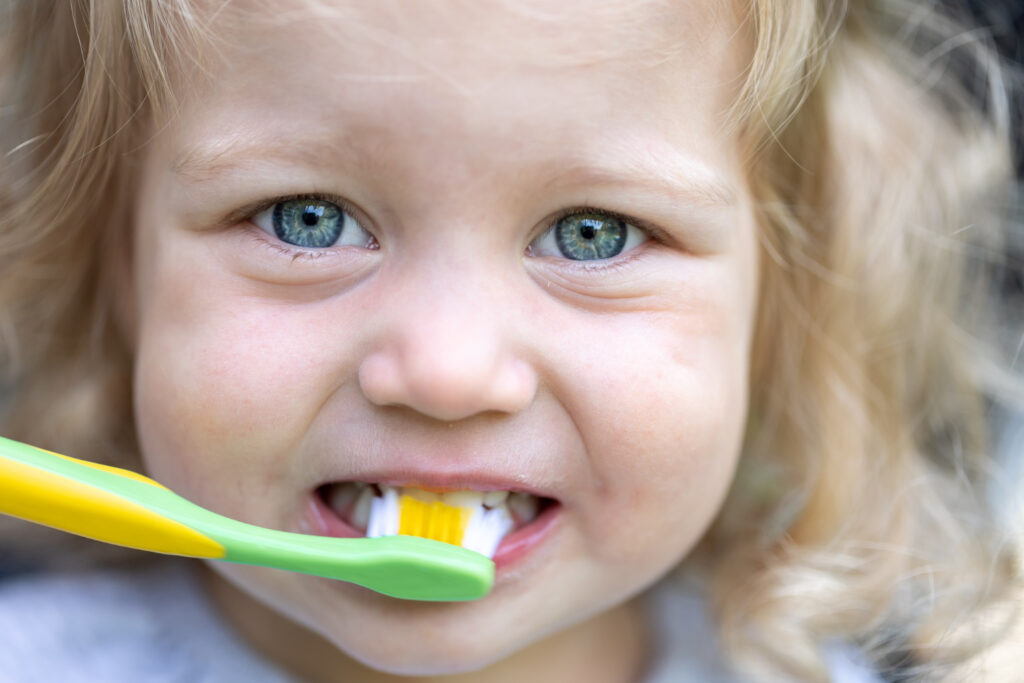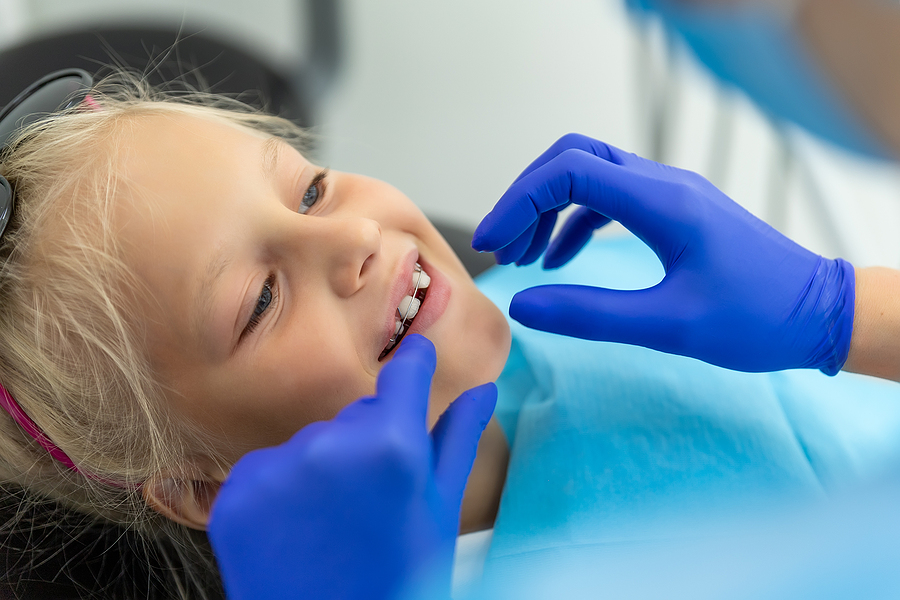As parents and caregivers, ensuring the well-being and healthy development of our infants is always a top priority. One common item that often finds its way into a baby’s life is the pacifier – a small, seemingly innocuous tool designed to soothe and comfort infants. Now, what is the truth about pacifiers and oral development in infants?
While pacifiers have been used for generations and can offer benefits, they have also sparked numerous debates concerning their impact on an infant’s oral development. Understanding oral development in infants is crucial as it sets the foundation for various essential skills, such as speech and language, chewing, and swallowing. Therefore, it is essential to be well-informed about how pacifiers may influence this crucial phase in a child’s life.
The Pros and Cons of Pacifiers: Pacifiers and Oral Development in Infants
Pacifiers have become a staple in many households with infants, largely due to their perceived soothing effects. However, it’s essential to weigh the advantages and disadvantages of pacifier use to make informed decisions about their appropriateness for our babies. Let’s delve into the pros and cons of pacifiers:
A. Advantages of using pacifiers in infants:
Soothing effects and reduced crying
Pacifiers can provide a source of comfort and security for babies, helping to soothe them when they are fussy or upset. The act of sucking on a pacifier can be calming and pacifying for many infants.
Potential for reduced risk of sudden infant death syndrome (SIDS)
Some studies have suggested that offering a pacifier during sleep may lower the risk of SIDS. However, it’s crucial to follow safe sleep guidelines, including placing infants on their backs to sleep and using an age-appropriate pacifier.
Comfort during stressful situations
Pacifiers can be particularly useful during situations that may cause stress for the baby, such as vaccinations or travel. The sucking action can provide a sense of security and help them cope with these challenges.
B. Disadvantages of pacifier use in infants:
Impact on breastfeeding and milk supply
Introducing pacifiers too early may interfere with establishing a successful breastfeeding relationship. Babies may become less interested in nursing, leading to potential challenges with milk supply.
Dental issues and misalignment of teeth
Extended use of pacifiers, especially beyond the age of two or three, can affect the alignment of a child’s developing teeth and jaw. Prolonged sucking on a pacifier may lead to dental problems, such as an overbite or open bite.
Potential for increased risk of ear infections
Frequent pacifier use, especially when babies are lying down, might contribute to an increased risk of ear infections due to changes in the Eustachian tube’s function.
Understanding Oral Development in Infants: Pacifiers and Oral Development in Infants
The first year of a baby’s life is a crucial period for oral development as it sets the foundation for various essential skills. Let’s explore the stages of oral development in infants and their significance:
A. Stages of oral development during the first year of life:
Sucking reflex and the importance of breastfeeding
From birth, infants have a natural sucking reflex that allows them to nurse at the breast or bottle. Breastfeeding plays a vital role in providing essential nutrients and antibodies to the baby, contributing to their overall health and immune system development.
Transition to oral exploration and mouthing behavior
As babies grow, they start exploring the world around them through their mouths. They engage in mouthing behavior, putting objects in their mouths to learn about their texture and taste. This stage is crucial for sensory development.
Introduction of solid foods and impact on oral muscles
At around six months of age, babies begin the journey of transitioning from a milk-only diet to solid foods. The introduction of soft and age-appropriate solid foods allows them to exercise their oral muscles, preparing them for chewing and speech development.
B. Significance of proper oral muscle development:
Speech and language development
Strong and well-developed oral muscles are essential for speech and language development. As babies explore sounds and mimic speech patterns, their oral muscles play a significant role in shaping the clarity of their communication as they grow older.
Chewing and swallowing skills
As babies progress to solid foods, their oral muscles learn to coordinate the chewing and swallowing process. This skill is crucial for efficient digestion and overall nutritional intake.
Facial muscle growth and development
Proper oral muscle development contributes to the balanced growth of facial muscles and bones, shaping the structure of the face as the child grows.
The Relationship Between Pacifiers and Oral Development in Infants
Understanding the potential impact of pacifiers on oral development is essential for parents and caregivers. Let’s delve into the existing research and explore the relationship between pacifiers and infant oral muscles:
A. Studies and research on pacifier and oral development in infants:
Effects on jaw and palate
Some studies suggest that prolonged pacifier use, especially beyond the age of two or three, can lead to changes in the shape of the jaw and palate. This alteration may contribute to dental issues, such as misalignment of teeth and an increased risk of malocclusion.
Muscle strength and coordination
There is some evidence to indicate that extensive pacifier use might affect the natural development of oral muscles. Babies may rely on the pacifier’s constant presence for soothing, potentially hindering the natural strengthening of these muscles through other forms of oral exploration and exercise.
Speech development
While research findings are mixed, some studies have shown a possible association between prolonged pacifier use and delayed speech development. The constant presence of a pacifier in the mouth may limit opportunities for babbling and vocalizing, which are essential building blocks for language development.
B. Potential effects of pacifiers on infant oral muscles:
Limited tongue movement
Prolonged pacifier use might restrict the natural movement of the tongue, affecting its ability to reach the roof of the mouth during speech and swallowing.
Weak oral muscle tone
Depending on the frequency and duration of pacifier use, some babies may develop weaker oral muscle tone, potentially impacting their ability to chew and articulate words later on.
C. Long-term implications of extended pacifier and oral development in infants:
Dental issues
Extended pacifier use can lead to malocclusion, where the teeth do not align properly, potentially necessitating orthodontic treatment later in life.
Speech difficulties
In some cases, prolonged pacifier use might contribute to speech difficulties, particularly if it interferes with proper tongue movement and muscle development.
Prioritize Your Child’s Oral Development with Floss & Gloss Kids Dentistry
Are you a parent or caregiver seeking the best dental care for your child’s oral health? Look no further! At Floss & Gloss Kids Dentistry, we are committed to providing exceptional pediatric dental care and promoting healthy oral development in children from an early age.
Why Choose Us?
Specialized Training
Our team of dentists and staff have received specialized training in pediatric dentistry, with a focus on primary teeth. We understand the unique dental needs of children and ensure that each visit to the dentist is a positive and comfortable experience.
Preventative Oral Care
We believe in the importance of preventative oral care to protect your child’s teeth, enabling them to eat, speak, and smile confidently. Our goal is to establish good dental health habits in children that will last a lifetime.
Collaborative Approach
We work closely with parents, providing guidance on proper dental care at home and identifying potential dental issues. We also collaborate with pediatricians to ensure your child’s overall health and well-being.
Schedule a Visit Today!
A healthy, bright smile begins with proper dental care. Don’t wait to prioritize your child’s oral health! Book an appointment with Floss & Gloss Kids Dentistry and let us help your child maintain a cavity-free, confident smile.
Contact Information:
Phone: 206-486-8068
Email: info@flossngloss.net
Address: Aurora Square II, 15819 Westminister Way N, Shoreline, WA 98133
Visit our website to book online and stay connected with us through Facebook and Instagram for exclusive events and the latest news.
At Floss & Gloss Kids Dentistry, we only scare cavities! Come see us, and let’s give your child the dental care they deserve for a lifetime of healthy smiles!








